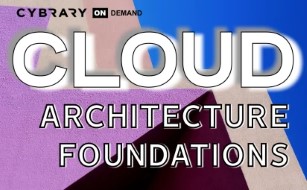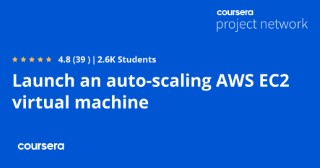Cloud Architecture Foundations
In this Cloud Architecture training, students learn the basics of cloud computing across three platforms – Amazon Web Services (AWS), Microsoft Azure, and Google Cloud. This class provides students with hands-on training and excellent instruction.
Course Description
This course will provide an introduction to the cloud and introduce students to the three major cloud platforms (Amazon AWS, Microsoft Azure, and Google Cloud). Cloud Architecture Foundations is for the student who is interested in the Cloud and desires to understand why the Cloud is relevant and compelling to IT organizations.
Cloud Architecture Foundations is for the student who is interested in the Cloud and desires to understand why the Cloud is relevant and compelling to IT organizations. The Cloud is more than 10 years old and represents almost 300 billion in annual IT revenues. Enterprise, large, and small-to-medium businesses are either “Cloud always”, “Cloud first”, or at a minimum “Cloud curious.” The Cloud Architecture Foundations course provides the student with the foundational learning of private cloud, hybrid cloud, community cloud, and public cloud architectures.
The course identifies who the players are in the Cloud market, the underlying technologies that power the Cloud, and the Cloud services and vendors that businesses adopt and deploy to deliver on business outcomes.
Understanding the basics of cloud computing is necessary for IT professionals as many organizations shift to the cloud. Master cloud-related processes and advance to implementing cloud security practices.
What is cloud computing? According to NIST, Cloud computing is a model for enabling convenient, on-demand network access to a shared pool of configurable computing resources (e.g., networks, servers, storage, applications, and services) that can be rapidly provisioned and released with minimal management effort or service provider interaction. Professionals and users must be able to identify technology enabled for securing mission critical cloud-based assets under the scope of all policies, processes and compliance considerations that go along with this increasing trend in technology adoption. What will I learn? Application, data migration and infrastructure architecture of cloud based systems.
Many businesses have moved to the Cloud for its agility, scalability, and of course monetary savings, but with all the benefits, of course, are risks. Professionals such as system owners, custodians, and even users must be aware of these risks and implement a strategic plan to protect against them.
In our Cloud Architecture training, students will have the opportunity to become familiar with cloud computing, what it is, what it does, and what the core architectural principles are. The course will include an introduction to the three major cloud computing platforms:
Upon the completion of this training, students will have basic knowledge of all three cloud services providers, preparing them to continue on with further cloud training courses and various certifications.
This course is foundational, which means that there aren’t any specific prerequisites for students who want to take this training. However, students with some general computing knowledge will have an advantage.
The cloud computing industry has quickly become an essential part of the IT infrastructure for many organizations across the world, and it isn’t slowing down any time soon.
There are many reasons that students should pursue education in cloud computing, including the following:
These days, it is important for IT professionals to have a solid grasp of cloud computing to remain competitive in the job market. Many organizations require that candidates for their IT teams have this knowledge, as well as various cloud computing certifications.
With Cybrary’s Cloud Architecture training course, students will develop a good understanding of the three major cloud services platforms. It’s the best place to start learning about cloud computing. The online course is convenient, self-paced, and thorough. To register for this course and get started, click the Register button at the top right of this screen.
Demand – Companies want to hire IT professionals who have professional training in cloud computing who can establish and maintain a cloud environment for their organizations. A quick online search will net thousands of job openings for cloud computing team members – more than the number of qualified professionals available.
Earning Potential – The potential earnings for cloud professionals in the industry can be quite lucrative. A cloud administrator earns an average of $67,467 per year with the top of the pay range being $103,000. For those who pursue the education and certifications to become a cloud architect, the salary is even higher. The national average salary for cloud architects is $128,418 annually with the top of the salary range being $167,000. Becoming knowledgeable in cloud computing offers candidates a way to enhance their overall earning potential.
With Cybrary’s Cloud Architecture training course, students will develop a good understanding of the three major cloud services platforms. It’s the best place to start learning about cloud computing. The online course is convenient, self-paced, and thorough. To register for this course and get started, click the Register button at the top right of this screen.
Module 1: Cloud Architecture
Module 2: Cloud Characteristics
Module 3: Cloud Providers
Module 4: Storage
Module 5: Networking
Module 6: Virtualization
Module 7: Amazon Web Services
Module 8: Microsoft Azure
Module 9: Demonstration Drive-Throughs For Supplementals
User Reviews
Be the first to review “Cloud Architecture Foundations”
You must be logged in to post a review.







There are no reviews yet.